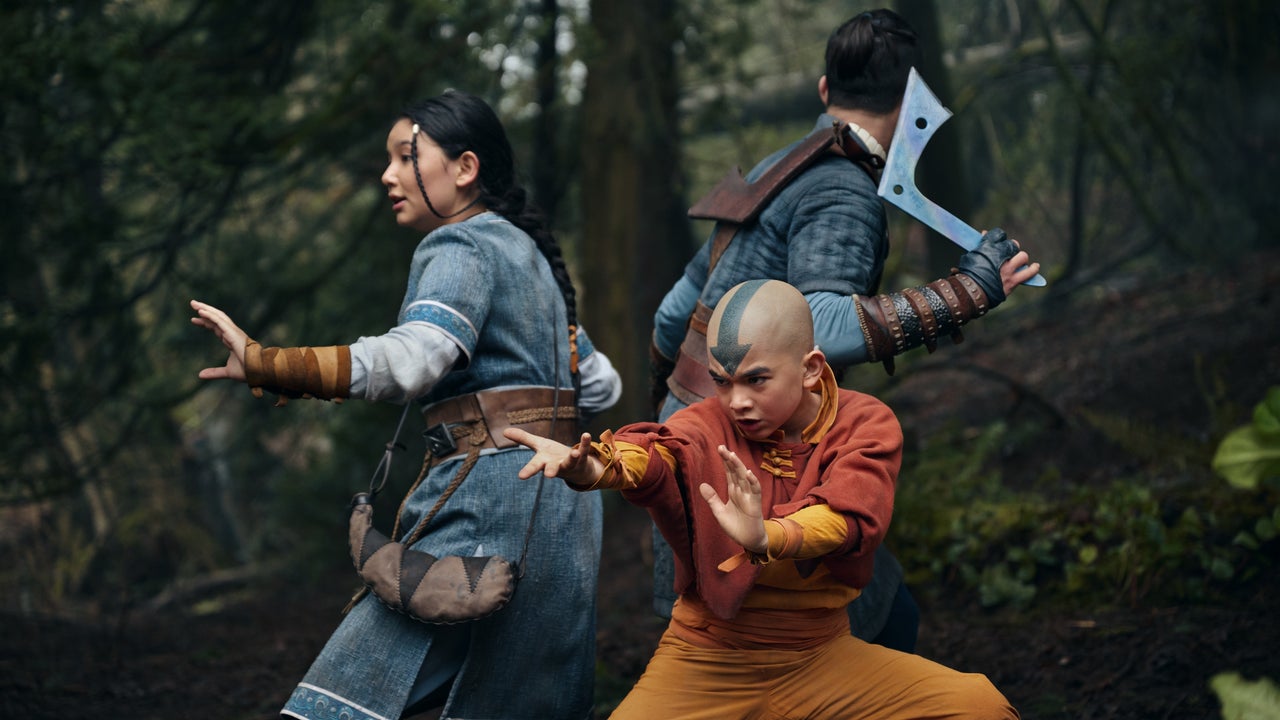I think one of the big questions is, despite all the remixing, is the point A and the point B still the same as the original?
AK: Pretty much. Yeah, I mean, I think the state of the world and the stakes of the world are still the same. So we decided to make Aang’s narrative drive a little clearer. In the first season of the animated series, he’s kind of going from place to place looking for adventures. He even says, “First, we’ve got to go and ride the elephant koi.” It’s a little looser as befits a cartoon. We needed to make sure that he had that drive from the start. And so, that’s a change that we made. We essentially give him this vision of what’s going to happen and he says, “I have to get to the Northern Water Tribe to stop this from happening.” That gives him much more narrative compulsion going forward, as opposed to, “Let’s make a detour and go ride the elephant koi,” that type of thing. So that’s something, again, that’s part of the process of going from a Nickelodeon cartoon to a Netflix serialized drama.



My gripe is that Aang ends up in an Iceberg because he was emotionally overwhelmed by the responsibility of being the Avatar and having to face a war while his entire identity and autonomy gets stripped from him, so he runs away. Running away and avoiding responsibility is his whole character defect to be overcome. But now, he has a vision, and runs up to save the day? Doesn’t actually rings too congruent to me. We’ll see in a few weeks. But the whole ordeal of the first season is Aang coming to terms with the reality of his identity and facing the responsibilities, and fear, associated with it.
If the show drops this emotional elements without properly addressing the void they leave behind narratively, they will lose the audience. They want both the Nickelodeon original fanbase and the GoT fanbase. I fear they will end up satisfying neither.
Valid point. We’ll have to see… I want to believe!!